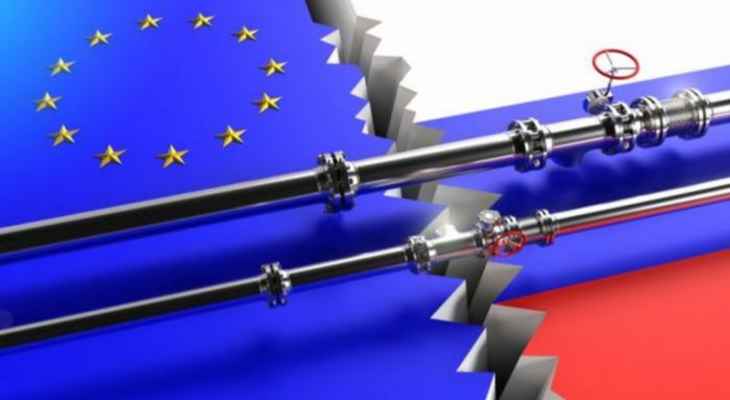The French press agency said in a statement that Moscow’s halt in natural gas supplies to France, the latest European country to be deprived of the resource, in addition to a sharp reduction in those supplies to Italy and Germany, caused unrest. Europe plans to store gas in preparation for the coming winter.
The agency said Moscow was pushing hard on Europe, which gets about 40 percent of its gas needs from Russia, to destabilize its economies, which a number of European countries, including Italy and Germany, rely on. Italian Prime Minister Mario Draghi has accused the energy giant Gazprom of lying about the reasons for the supply cuts.
European Union countries want to fill their reservoirs to at least 80 percent by October.
Cuts in gas supplies will also cost industrialized countries like Germany, where the chemical, metal, cement and fertilizer industries need massive amounts of gas.
“The Russians have been using gas as a weapon for a long time, and the Kremlin is using the uncertainty principle of doing one thing today and another thing the next to drive up prices,” said Thierry Bruce, a professor at the Pau University of Sciences. in Paris, according to AFP.
Poland, Bulgaria, Finland and the Netherlands have suspended Russian gas supplies due to their refusal to pay the price in Russian rubles.
The latest strikes have hit France after GRT announced it hasn’t received Russian gas via the pipeline since June 15, and Italy, which has been facing a third day of supply cuts.
On Friday, the European reference price for Dutch natural gas “TTF” reached 130 euros ($137) per MWh, up from 100 euros on Wednesday and 30 euros a year ago.
France relies on Russia for about 17 percent of its gas needs, most of which comes through pipelines and the rest is transported as liquefied by ship.
The reason for the reduction is not explained, but it follows a 60% reduction in supplies to Germany via the Nord Stream 1 gas pipeline.
The Italian company Eni said, according to the agency, that it would receive only 50 percent of the required Russian gas.
Draghi dismissed Gazprom’s excuses for reasons that “we were told are technical,” adding, “We, Germany and others, believe this is a lie,” and stressed that the Russian company was using the gas for “political” purposes.
German Economy and Climate Minister Robert Habeck called the cuts in gas supplies “a confrontation with (Russian President Vladimir) Putin,” adding: “It’s a decision he makes arbitrarily, that’s how tyrants and tyrants behave.”
However, Gazprom says that Moscow has every right to act according to its own rules to reduce gas supplies, and Bruce noted that Gazprom “does not need any excuses”, adding that “he cuts European unity differently “. .”
European Union countries are keen to phase out Russia’s energy resources but remain divided over a ban on Russian gas as many member states are heavily dependent on supplies from Moscow and some countries are considering installing new gasification plants to expand their production capacity LNG.
France has already significantly increased its LNG purchases since the invasion in February, and its plants are close to the limit, according to GRT Gas.
France has become the world’s largest buyer of Russian liquefied natural gas, according to Crea Energy and Clean Air Research Center analyst Lori Milivirta, who published a report on Russian oil and gas sales this week.
Source: El Nashra
